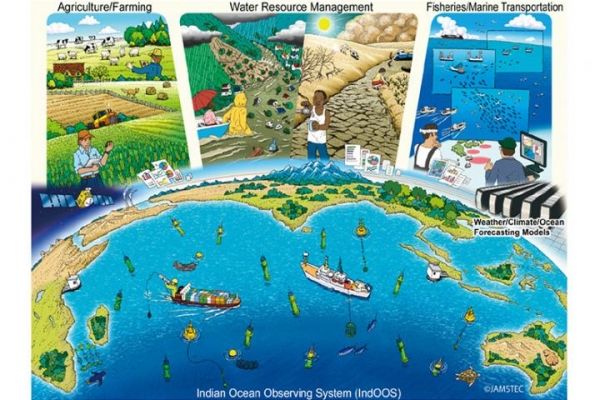A group of more than 60 scientists have provided recommendations to improve the Indian Ocean Observing System (IndOOS), a basin-wide monitoring system to better understand the impacts of human-caused climate change in a region that has been warming faster than any other ocean.
The group, led by Lisa Beal, professor of ocean sciences at the University of Miami (UM) Rosenstiel School of Marine and Atmospheric Science, provides a road map for an enhanced IndOOS to better meet the scientific and societal needs for more reliable environmental forecasts in the next decade. The 136 actionable recommendations from the three-year, internationally coordinated review were published in the Bulletin of the American Meteorological Society.
The scientists call for four major improvements to the current observing system: 1) more chemical and biological measurements in at-risk ecosystems and fisheries; 2) expansion into the western tropics to improve understanding of the monsoon; 3) better-resolved upper ocean processes to improve predictions of rainfall, drought, and heat waves; and 4) expansion into key coastal regions and the deep ocean to better constrain the basin-wide energy budget.
Read more at University of Miami Rosenstiel School of Marine & Atmospheric Science
Images: Artist's illustration of the Indian Ocean Observing System and its societal applications. IndOOS data support research to advance scientific knowledge about the Indian Ocean circulation, climate variability and change, and biogeochemistry, as well as societal applications due to its contribution to operational analyses and forecasts. Citation: Bulletin of the American Meteorological Society 101, 11; 10.1175/BAMS-D-19-0209.1 (Credit: JAMSTEC)


